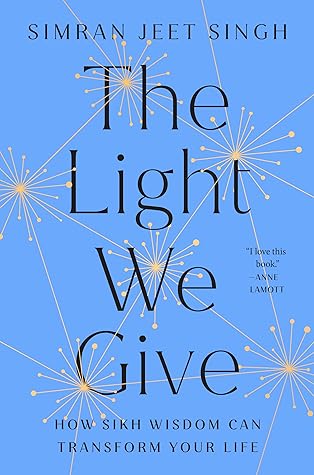More on this book
Community
Kindle Notes & Highlights
Read between
August 15 - August 15, 2022
Our species is wired to deal with anger and frustration in one of two ways: fight or flight. Yet neither of these addresses our problems sufficiently, and neither of them brings us satisfaction. Whichever of the two paths we choose, we find ourselves—as I did after both incidents—wrestling with regret, wondering what we could have done differently, and confused about how to respond the next time we’re in a tough situation. Worse still, we walk away feeling more upset, not less. This is how we get mired in cycles of anger and frustration.
Life gives each of us our own challenges. We don’t choose them and we can’t predict them. All we can do is prepare ourselves to deal with them. When challenges confront us and we consider how to respond, we tend to take one of two imperfect paths: ignore or agitate. Ignoring our problems can give us momentary escape, while agitating against them can be an emotional release with consequences.
historically speaking, religion is the parent of American racism. Just a year after Columbus arrived in North America, Pope Alexander VI issued what would come to be known as the Doctrine of Discovery, which announced that Christians were superior to Indigenous “heathens” everywhere and therefore had the right to colonize them. Religion laid the groundwork for American racism.
white supremacy often cloaks itself in the disguise of religion. We see this clearly in how Christian slaveholders in the eighteenth and nineteenth centuries used the Bible to sanctify the enslavement of darker-skinned people.
of being visibly distinct in how we look—which triggers people’s fears, anxieties, and racism—and of being rendered invisible when it comes to inclusion, representation, and belonging.
“Until lions have their own historians, tales of the hunt will always glorify the hunter.”
One theme rang consistently throughout my dozens of conversations with the survivors: Each and every person I spoke to referred to the Sikh teaching of chardi kala, a phrase that translates roughly to “everlasting optimism.”
They all pointed to the idea of ik oankar: “Everything is divine,” the survivors would say. “Of course we’re in pain. But how could we be unhappy when God lives in our pain, too? Everything in life is beautiful, even the hard parts.”
learned through my conversations with survivors that gratitude is not something that happens by accident but rather is cultivated through intention and practice. The more we bring it into our lives, the stronger it becomes. Adopting gratitude as a practice enables us to find the blessings and silver linings all around us, changing forever how we see the world and experience our lives.
view divinity as light. Light is something we can see all around us. Light is illuminating, ever present, and connective. It brings clarity in moments of obscurity and uncertainty. The light is always there. The nature of the light doesn’t change. The sun is always shining; our ability to see it depends on our position and perspective.
We all come from and share the same light. Therefore, we are all equal.
If we embrace the notion that we all share the same light, then we can also see that the various forms of social oppression and hierarchy—racism, sexism, homophobia, to name just a few—are not inherent in us as human beings. We are not born with these ideas. We learn them. This can be empowering to realize, because when we accept that these behaviors are learned, we also accept that they can be unlearned. This outlook comes with the promise of possibility.
Dr. Martin Luther King speaks to this in his sermon “Loving Your Enemies.” To our most bitter opponents we say: “We shall match your capacity to inflict suffering by our capacity to endure suffering. We shall meet your physical force with soul force. Do to us what you will, and we shall continue to love you. We cannot in all good conscience obey your unjust laws, because noncooperation with evil is as much a moral obligation as is cooperation with good. Throw us in jail, and we shall still love you. Bomb our homes and threaten our children, and we shall still love you. Send your hooded
...more
It’s not just that we all come from and share a single divine light. It’s also that our differences are expressions of that one light. Walking this fine line can move us from tolerating our differences to celebrating them. When tolerance is our goal, we prevent ourselves from releasing something far more powerful—a model of pluralism that sees our differences as beautiful and does not feel threatened by them. Until and unless we are able to embrace such a model, we’ll remain unable to tap into the richness of our humanity.
On May 4, 1493, just a year after Christopher Columbus arrived in the New World, Pope Alexander VI issued the papal bull Inter Caetera, which announced that any land not inhabited by Christians was open to be “discovered by Christian rulers” and that the “Catholic faith and Christian religion be exalted and be everywhere increased and spread, that the health of souls be cared for, and that the barbarous nations be overthrown and brought to faith itself.” This document, which enacted what would come to be known as the Doctrine of Discovery, was foundational to European colonization of the
...more


